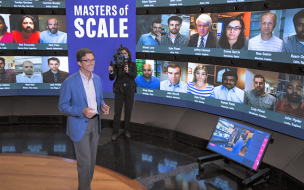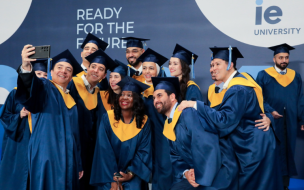The Raymond A. Mason School of Business in Virginia, US, launched its new all-digital degree this month.
It will provide flexibility for working professionals and executives, said the program’s director Pam Suzadail, many of whom have struggled to find both the time and cash for the traditional two-year MBA programs that are common in the States.
The online course will also deploy a customized mobile app, allowing students to work anytime and anywhere.
This is the latest digital innovation in education, with many MBA programs dishing out smart devices, tablets and laptops to enable students to learn and connect with peers on the go.
AGSM, part of UNSW Business School in Sydney, recently announced plans to roll out digital course material, and to allocate Apple iPads to new students last month.
The leading Australian business school said the move was part of “ongoing strategies to improve utility and functionality of learning”.
Julie Cogin, deputy dean of UNSW Business School, said: “The leaders studying in our programs are leaders in a digital world, and by facilitating learning [in] this way we are equipping them to deal with future trends in the workplace.”
Mason School’s online MBA will be administered by Everspring, a higher education online services provider, using its proprietary customizable services and technology platform.
The distance learning specialist is one of a number of technology companies that are capitalizing on the digitization of the higher and business education sectors.
Other platform providers include Coursera, a maker of Moocs, or massive open online courses, which has amassed 10 million users, and NovoEd, a company which provides tech to business schools Wharton, Darden and Haas.
2U is the most successful, after the learning technology provider floated on the Nasdaq in 2014. Its current market capitalization is more than $730 million.
The Kogod School of Business, based in Washington, announced in January it was developing an online MBA degree and an online master in business analytics program, both powered by 2U technology.
Erran Carmel, dean of Kogod School of Business, said that an interactive learning environment is important in helping students become successful.
Earlier in January, another online provider, University of the People, revealed that it was developing two MBA programs, following accreditation from the Distance Education Accrediting Commission in 2014.
UoPeople has grown to have about 2,500 students from more than 150 different countries, many in the US.
Florida State University College of Business this month said it would offer an online MBA program with a focus in hospitality and tourism management, to be launched in June.
California’s Stanford GSB announced at the end of last year its ambition to launch a new program for executives that will be delivered entirely through a digital platform.
Known as the LEAD Certificate program, it will use instructional video, online exercises, group projects and live-streamed events, on a platform powered by NovoEd.
Peter DeMarzo, faculty director for educational technology at Stanford, said the technology will enable self-paced learning and a cloud-based “immersive space” for group work.
Stanford’s investment in video technology is a step in the direction of personal tech for use in and outside classrooms, which is poised to disrupt the business education market.
Along with AGSM, Hult International Business School and Ashridge Business School, both based in the UK, have given students iPads that come preloaded with case studies and textbooks.
Georgia’s Robinson College of Business, the Mendoza College of Business and Virginia’s Darden School of Business of the US have taken similar steps towards digitizing their content.
According to IDC, a market research group, more than four million PCs and tablets were sold in the US education sector in the third quarter of 2014, up from three million in the same period in 2013.
RECAPTHA :
b0
ca
12
51








